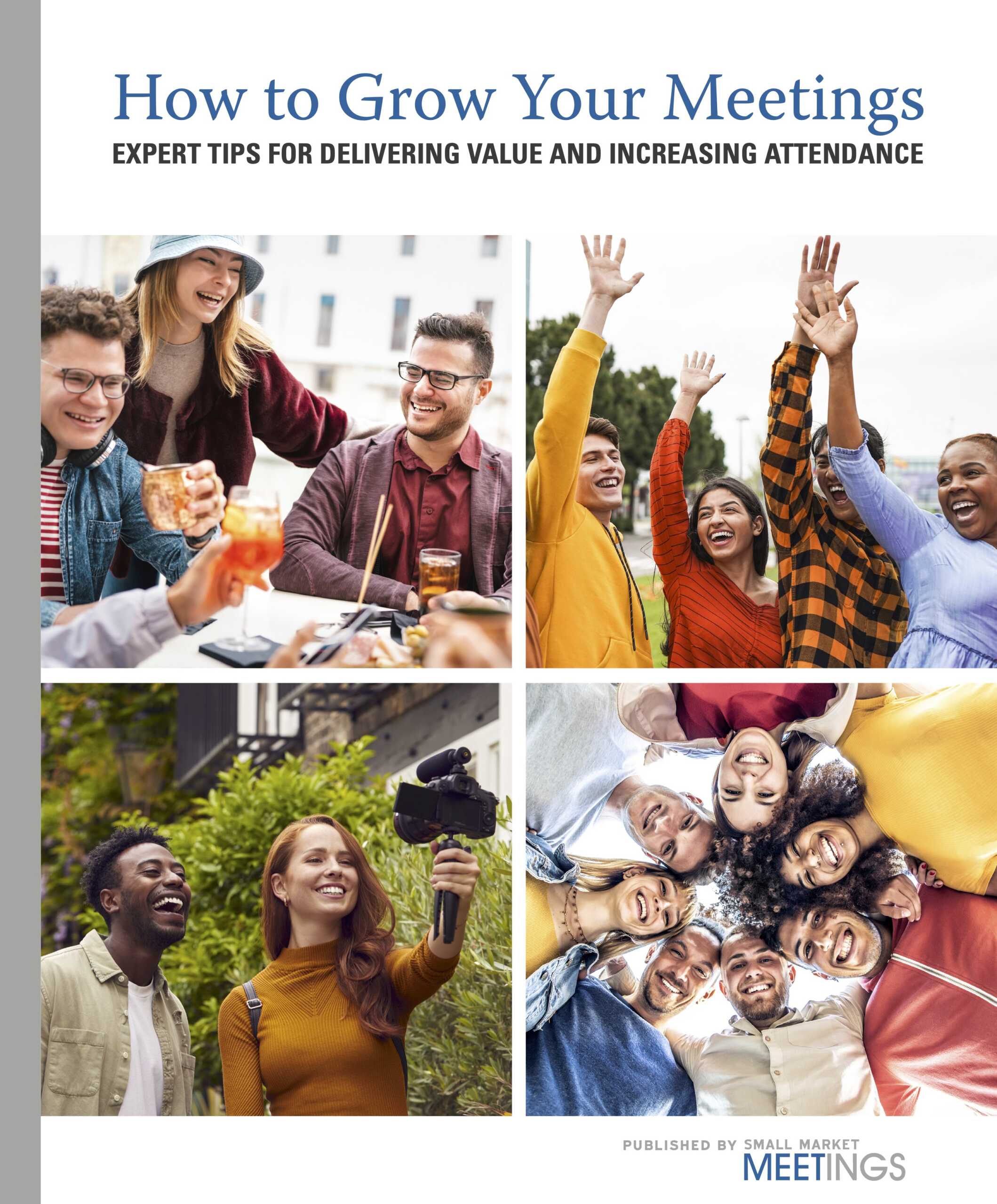The events industry has been slow to act when it comes to climate change, said Natalie Lowe, founder of the Sustainable Events Forum and Celebrate Niagara. The 2020 Voice of the GM survey found that hotel general managers believe that more than half of their hotel guests are neutral about sustainability or consider it unimportant. Yet, the Yale Program on Climate Change Communication found that over 72% of U.S. citizens think global warming is happening, and 61% think it will harm people in the U.S. — and 56% say it already is.
Lowe, a meeting planner in Canada’s Niagara region, co-founded the Sustainable Events Forum as a resource for planners. It is centered around four pillars: educate, collaborate, inspire, act. She believes that smart changes and proactive measures can help the meetings industry plan events that will meet attendees’ demand for sustainability while still succeeding in its core missions.
We spoke with Lowe and two other leaders in the sustainable events movement to get their perspectives on how meeting planners should approach the environmental impacts of their gatherings. Here’s what they had to say.
People, Planet, Prosperity
To start, planners should think about the event objectives and think holistically about making the best choice for people, planet and prosperity, said Mariela McIlwraith, vice president of sustainability and industry advancement for the Events Industry Council (EIC).
Planners should find some aspect of sustainability that’s meaningful to them and “that’s going to motivate you and that you’re passionate about,” she said. “Maybe that’s on the environmental side or the social justice side; there are 17 U.N. sustainability goals and even more targets.”
Planners can also look at their own organization’s or client’s mission, vision and values to determine what is meaningful to their stakeholders, which “helps you get the support you need to get them engaged and your extended supply chain,” McIlwraith said.
Organizers should also understand that sustainability is important to attendees, said Mark Cooper, CEO of IACC. Attendees will notice a lack of effort and won’t feel comfortable about seeing excess waste, unnecessary materials, single-use plastics and more.
“If you want to have an effect on the experience of attendees, believe me, these areas can be more important than having a wow factor by an entertainer or gift in the room because it means more to today’s attendees,” he said.
Where To Go To Gather
An important part of creating a sustainable approach to meetings is determining what those events should entail. Can they be a series of smaller, regional meetings that would allow attendees to drive in, perhaps even via carpool or motorcoach? If distances are shorter, the events can take a hub-and-spoke approach, Lowe said.
Groups should also dig into what makes a destination sustainable. Does the city get most of its power from coal, or does it use wind, solar, geothermal or hydro power? They should also consider factors like waste management. Many cities run their own waste services and offer comprehensive recycling and composting programs; many leave waste collection to private companies that don’t. Transit is a huge piece of a destination’s environmental footprint, and planners should look for cities where attendees can use light rail, bus or trolley service.
IACC chose Brussels as the host city for a 2019 event because Eurostar train access meant “so many people could take the train there rather than fly,” Cooper said. For the IACC Americas Connect 2021 event in July, organizers chose Delaware because of the train that connects to New York and other major East Coast cities.
Start with the RFP
EIC’s most recent sustainability survey included questions about supplier and planner expectations, McIlwraith said. The survey found a gap between planners expecting to see sustainability components in requests for proposals and suppliers waiting to be asked.
“Planners need to ask in the RFP process, and suppliers should bring it forward right off the bat,” she said.
Lowe pointed to a recent conversation with an audiovisual person who explained that a power drop costs $20,000, whereas using solar power generators, with no power drop, costs $10,000 — but planners don’t know that.
“Right off the bat, you save money and you’re off the grid,” she said.
The Sustainable Events Forum has created an RFP that asks sustainability questions and offers it free on its website.
Look for venues that have some kind of sustainability certification, like LEED or IACC Green Star certification. IACC Green Star is a set of best practices and certification standards for event venues that cover 60 tenets in areas like energy efficiency, waste management, recycling, water conservation, air quality, and food and beverage (F&B). Planners need to ask for venues’ credentials; if you’re not asking about venues’ credentials, it’s impossible to measure, and you’ve lost the opportunity to compare venues, Cooper said.
Venues that excel in areas such as social responsibility and the environment are also more likely to excel in other areas, like customer service and attendee experience, he said.
“When you’ve got that mindset and that culture as an organization, it tends to equal excellence in other areas,” he said.
Even if a venue isn’t certified, try to get a sense of whether the team is committed to creative solutions because “there’s always more than one way to achieve an outcome when it comes to sustainability,” McIlwraith said.
Five Rs
One of the biggest issues for meetings is excess: swag bags and paper pamphlets and overflowing buffets. When Lowe created a sustainable events webinar for MPI, she looked at the three Rs — reduce, reuse, recycle — and added refuse and replace.
“But here’s the catch: They have to be done in order — refuse, replace, reduce, reuse, recycle,” Lowe said. Planners need to “just say no” to unnecessary, optional extras, which could save money to be used in other areas.
The industry’s greatest opportunity to reduce waste is by reducing food waste. F&B minimums are “one of the greatest sins of our industry because it encourages you to order more food than you need,” Cooper said.
Lowe suggests connecting with the chef and maintenance person at the venue to talk about what comes in and what goes out. Work with the chef on how to manage food waste, which could include making less food, using less meat, having one less break, doing plated meals instead of buffets, not topping up buffets and donating leftovers. Organizers should also talk with the maintenance person about the venue’s waste recovery processes, like whether the venue composts.
Planners should also take the extra step of making sure compostable plates and utensils are compostable in the destination; if not, you might be better off with reusables because compostable could just become “expensive trash.”











